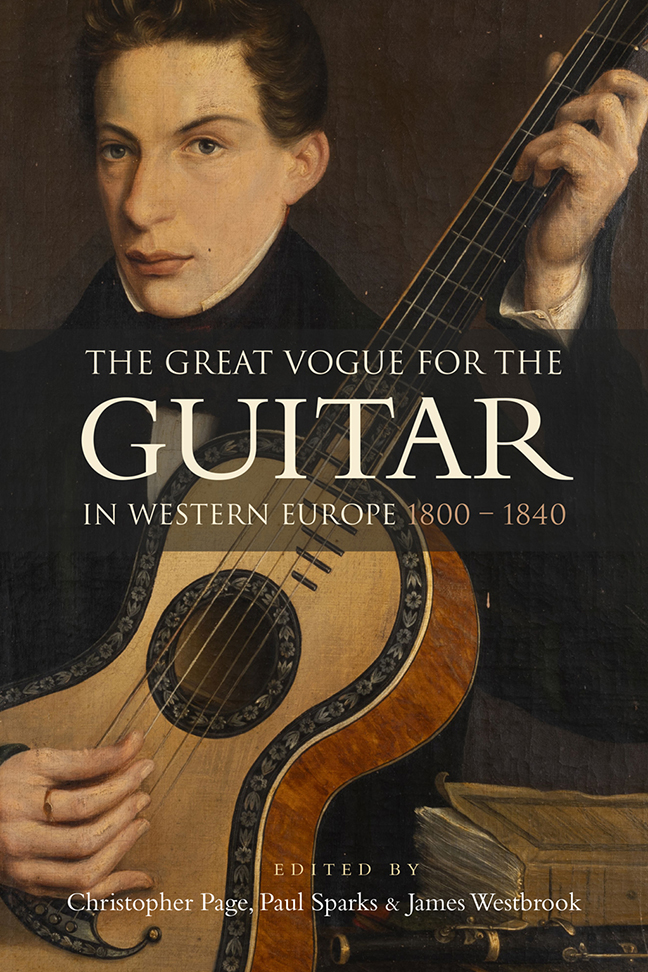Book contents
- Frontmatter
- Dedication
- Contents
- List of Illustrations
- Music examples
- The editors and the contributors
- Foreword
- Acknowledgements
- List of Abbreviations
- Introduction: The Great Vogue for the guitar
- I Contexts
- II The repertoire and its composers
- Appendix: A note on string-making
- Glossary of guitar terms
- Select Bibliography
- Index
14 - Dionisio Aguado (1784–1849)
Published online by Cambridge University Press: 10 January 2024
- Frontmatter
- Dedication
- Contents
- List of Illustrations
- Music examples
- The editors and the contributors
- Foreword
- Acknowledgements
- List of Abbreviations
- Introduction: The Great Vogue for the guitar
- I Contexts
- II The repertoire and its composers
- Appendix: A note on string-making
- Glossary of guitar terms
- Select Bibliography
- Index
Summary
In the early nineteenth century, it was fashionable among the members of Spain’s upper classes to cultivate aspects of popular culture, and the guitar was drawn into that process. The instrument, its music, its practice and the way it was taught and learned were then closely linked to popular, non-elite and deeply rooted traditions. Many Spanish guitarists remained quite faithful to them, cultivating the instrument with great enthusiasm, but with little sophistication and less discipline; others, however, without losing contact with the popular, and perhaps coming from that world or immersed in it themselves, made an effort to raise the social and artistic status of the instrument. They endowed it with a certain sophistication and a technical methodology much more in line with the position occupied by other more highly appreciated instruments. Dionisio Aguado was undoubtedly one such musician.
Aguado's early life
Aguado was born in Madrid at 20 calle del Oso on 8 April 1784 and was baptised two days later as Dionisio Tomás Ventura. His mother was María Josefa García, a native of the town of Calera, and his father was Tomás Aguado, from the town of Pinto. Dionisio's childhood was passed in the bosom of this well-to-do family, where he was the only child. At the age of 8, he began to study, probably with the aid of tutors, ‘Latin grammar, philosophy and the French language, subjects in which he made great progress in a very short time’. At this same time, he also began to study the guitar, having been encouraged by his father to cultivate the instrument ‘merely as a pastime’. The teacher chosen for him was Fray Miguel Garcia, known as Padre Basilio, a well-connected person in Madrid and a guitarist of some prestige. Little is known for certain about this monk of the monastery of San Basilio in Madrid; he may have had some contact with the royal family, and he certainly enjoyed a good reputation in intellectual circles, but he does not appear to have received a comprehensive musical training. Aguado, from his very first lessons with this teacher, approached the guitar with ‘extraordinary facility and willingness’.
Before he was 11 years old, Aguado succumbed to a ‘mesenteric fever’ – an intestinal condition, which in some cases could be fatal.
- Type
- Chapter
- Information
- The Great Vogue for the Guitar in Western Europe1800-1840, pp. 221 - 236Publisher: Boydell & BrewerPrint publication year: 2023



